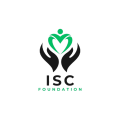Ivanya’s Disaster Management Initiatives in Tripura.

Recognizing the vulnerability of communities in Agartala, Tripura, to natural and human-induced disasters, the Ivanya Foundation is committed to proactive and responsive disaster management initiatives. Our approach goes beyond immediate relief efforts, focusing on building long-term resilience, empowering communities to prepare for and cope with crises, and ensuring that the most vulnerable, particularly women and children, are protected and supported throughout the disaster cycle.
For the Ivanya Foundation, disaster management is not a separate program but an integrated aspect of our community development work. We understand that disasters can disproportionately impact marginalized populations, exacerbating existing inequalities and hindering progress in areas like women’s empowerment, education, and livelihoods. Therefore, our disaster management strategy is intrinsically linked to our core mission of creating a more just and equitable society.
Our comprehensive approach to disaster management in Agartala and Tripura encompasses the following key areas:
1. Preparedness and Risk Reduction:
- Community-Based Risk Assessments: We work with local communities to identify potential hazards, assess their vulnerabilities, and map out risks specific to their geographical context. This participatory approach ensures that preparedness plans are relevant and tailored to local needs.
- Awareness and Education Campaigns: We conduct widespread awareness campaigns on disaster risks, early warning systems, and essential safety measures. These campaigns utilize culturally appropriate communication methods and target vulnerable groups, including women, children, and the elderly.
- Capacity Building and Training: We provide training to community members, including women’s groups and youth volunteers, on first aid, search and rescue techniques, shelter management, and basic disaster response protocols. This empowers local individuals to be first responders within their own communities.
- Developing Community Disaster Management Plans: We facilitate the development of community-led disaster management plans that outline roles and responsibilities, evacuation routes, communication strategies, and resource mobilization mechanisms at the local level.
- Promoting Safe Construction Practices: We advocate for and provide training on safe building techniques to minimize the impact of earthquakes and cyclones, ensuring that homes and community infrastructure are more resilient to disasters.
2. Emergency Response and Relief:
- Rapid Needs Assessments: In the immediate aftermath of a disaster, our trained teams conduct rapid needs assessments to identify the most urgent requirements of affected communities, including food, water, shelter, medical assistance, and sanitation.
- Distribution of Relief Materials: We mobilize and distribute essential relief supplies, such as food rations, clean water, hygiene kits, blankets, clothing, and temporary shelter materials, in a timely and equitable manner, prioritizing the needs of the most vulnerable.
- Setting Up Temporary Shelters: We assist in establishing and managing temporary shelters for displaced individuals and families, ensuring safe and dignified living conditions.
- Providing Medical Assistance: We organize medical camps and facilitate access to healthcare services for those injured or affected by the disaster, including psychosocial support to address trauma and stress.
- Facilitating Communication and Information Flow: We work to establish clear communication channels between affected communities, local authorities, and other aid organizations to ensure effective coordination of relief efforts and the dissemination of accurate information.
3. Rehabilitation and Recovery:
- Supporting Livelihood Restoration: We provide support to affected families to rebuild their livelihoods through cash grants, vocational training, and assistance in accessing resources for income-generating activities. We prioritize the economic empowerment of women in the recovery process.
- Reconstruction and Repair of Infrastructure: We work with communities to facilitate the reconstruction and repair of damaged homes, schools, and community infrastructure, promoting safer and more resilient building practices.
- Psychosocial Support and Trauma Counseling: Recognizing the long-term emotional impact of disasters, we provide psychosocial support and trauma counseling services to affected individuals and families, helping them cope with loss, grief, and stress.
- Community-Led Recovery Planning: We engage communities in the planning and implementation of recovery efforts, ensuring that the process is inclusive, participatory, and addresses their specific needs and priorities.
- Advocacy for Long-Term Support: We advocate with government agencies and other stakeholders for long-term support and resources to facilitate the sustainable recovery of disaster-affected communities.
4. Mainstreaming Disaster Risk Reduction into Development:
- Integrating DRR into Existing Programs: We ensure that disaster risk reduction considerations are integrated into all our ongoing development programs, including those focused on women’s empowerment, education, and livelihoods. This proactive approach aims to build resilience and minimize the potential impact of future disasters.
- Promoting Climate Change Adaptation: Recognizing the increasing frequency and intensity of climate-related disasters, we promote climate change adaptation strategies within communities, such as water-efficient agriculture and the diversification of livelihoods.
- Advocacy for Disaster-Resilient Policies: We advocate for the adoption and implementation of disaster-resilient policies and practices at the local and state levels, ensuring that development initiatives are sustainable and minimize disaster risks.
Our Commitment to Women in Disaster Management:
The Ivanya Foundation recognizes the unique vulnerabilities and capacities of women in the context of disasters. Women are often disproportionately affected by disasters due to pre-existing gender inequalities and social norms. However, they are also powerful agents of change in disaster preparedness, response, and recovery. Therefore, our disaster management initiatives actively:
- Ensure women’s participation in risk assessments and planning processes.
- Provide targeted training and capacity building for women in disaster preparedness and response.
- Address the specific needs of women and girls in relief and recovery efforts, including issues of safety, health, and access to resources.
- Support women’s leadership in community-based disaster management committees.
- Promote women’s economic empowerment as a key strategy for building long-term resilience.
Through our comprehensive and community-centered approach to disaster management, the Ivanya Foundation strives to build safer, more resilient, and empowered communities in Agartala, Tripura. We are committed to working alongside local populations, government agencies, and other stakeholders to minimize the impact of disasters, protect the most vulnerable, and foster a culture of preparedness and resilience for a more secure future.
